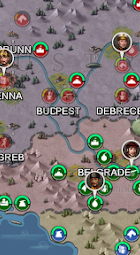

And it’s there at the bar, over a number of years, that I coaxed and pulled stories of the war out of veterans who wanted to forget. My father was President of The Catholic War Veterans Post that was named after Francis Adams. Engraved in my mind is the living room of our neighbors, the Adamses, turned for many years after the war into a shrine for the boy who never came back. I’m talking about the greatest sacrifice a family can make: the loss of a loved one. I’m not talking about the enforced rationing of butter, coffee, or gasoline.

America was the only country in the world to grow fatter, more prosperous during the war. We weren’t invaded as other combatants were nor were our great cities turned to rubble. Before that, he had fought on Omaha Beach on D-Day.Įxcept for those like him who saw combat, Americans didn’t directly experience the plague of war. That army swept across Europe and into Germany, where my Uncle John, serving as a GI in Patton’s blitzkrieg, was captured as a prisoner of war. And my grandfather worked in a steel mill that forged armaments for General George Patton’s Army. My mother worked at Jacobs Aircraft, which produced parts for the planes for the air arm my father served in. But I grew up in a working class neighborhood of a Pennsylvania town in which nearly every young man served in the war, and dozens of women worked in war industries. I was born too late to experience the war. It’s also a story that touched me personally. This is about what happened to an aroused democracy, the most powerful on earth, when it was forced to wage a war it didn’t desire, but chose to fight, without let-up, to the finish.
LEIPZIG BATTLE EUROPEAN WAR 3 SERIES
What follows is less a lecture than a memory book, a series of story-telling snapshots which try to capture the war and what it meant to ordinary Americans who experienced it. World War II is so enormous in its scope and savagery, it’s almost impossible to imagine, let alone encompass in a short lecture. And over 400,000 American servicemen lost their lives as well. Six million of them killed in a Holocaust that had no direct connection to the fighting. Over 50 million people died, most of them civilians. World War II would be the most terrible war, maybe the most terrible catastrophe, in the history of humanity. What changed was the technology of destruction: ships and tanks and planes of prodigious power, a cascade of destructive force culminating in the atomic bomb. Humankind’s powers of reason and capacity for irrationality remained unchanged on the eve of World War II. In ending the war in this way, the United States began a new era in history, as well as in warfare. As Roosevelt assured the American people: “The militarists of Berlin and Tokyo started this war but the massed, angered forces of common humanity will finish it.” And they did, annihilating from the air over fifty German and Japanese cities before dropping atomic bombs on Hiroshima and Nagasaki in August l945. The world war that followed, two years later, was fought with vindictive fury by both sides. In the ancient city of Nanking, Japanese soldiers shot, stabbed, beheaded, hung, castrated, and raped tens of thousands of non-resisting men, women and children, in what has been called a “Hidden Holocaust.” Japanese and Germans marked the way in l937: the Japanese with the Rape of Nanking, and the Germans, in the Spanish Civil War, with the bombing of Guernica, an atrocity captured on canvas with terrifying power by Pablo Picasso. In World War II, civilians were deliberately attacked. In the Civil War, Union Generals Grant and Sherman had carried the fight to the homes and farms of the South, but civilians were rarely fired upon, except, as at Vicksburg, when trapped with armies in a siege situation. It would be America’s first experience with this kind of warfare. It was already a total war, a war waged against innocent women and children, as well as men in arms. That week, the European war that had begun with the Nazi invasion of Poland became a world war. Miller: Three days later, Hitler’s Germany and Mussolini’s Italy declared war on the United States. Roosevelt: A date which will live in infamy. The next day, President Franklin Roosevelt went before a joint session of Congress and got a declaration of war against Japan, a country in the grip of maniacal war lords. Miller: On the morning of December 7th, l941, a Japanese air armada attacked the American naval base at Pearl Harbor, Hawaii, knocking out half the U.S. Narrator: “World War II” on A Biography of America. We’re fighting for freedom from fear, freedom of expression, freedom of religion, freedom from want. I mean, you’ve got all the big figures.īrinkley: One of the geniuses of Franklin Roosevelt is that ability to articulate what we’re fighting for. Miller: World War II is such an enormous theater. Brinkley: World War II is thought of as the “good war.”


 0 kommentar(er)
0 kommentar(er)
